Document Author
Year Published
- 2015 (4) Apply 2015 filter
- 2017 (3) Apply 2017 filter
- 2021 (3) Apply 2021 filter
- 2004 (2) Apply 2004 filter
- 2013 (2) Apply 2013 filter
- 2020 (2) Apply 2020 filter
- 2005 (1) Apply 2005 filter
- 2007 (1) Apply 2007 filter
- 2008 (1) Apply 2008 filter
- 2012 (1) Apply 2012 filter
- 2014 (1) Apply 2014 filter
- 2018 (1) Apply 2018 filter
- 2019 (1) Apply 2019 filter
Topic
- (-) Remove Best Practices filter Best Practices
- (-) Remove Research filter Research
- Reports, Evaluations, Best Practices, Surveys (23) Apply Reports, Evaluations, Best Practices, Surveys filter
- 100% Access to Justice (11) Apply 100% Access to Justice filter
- Self-Help Centers (9) Apply Self-Help Centers filter
- Trial Court Self-Help (9) Apply Trial Court Self-Help filter
- Best Practices for Self-Help Centers (6) Apply Best Practices for Self-Help Centers filter
- Forms (5) Apply Forms filter
- Reports (5) Apply Reports filter
- Strategic Planning (5) Apply Strategic Planning filter
- Managing a Self-Help Center (4) Apply Managing a Self-Help Center filter
- Starting a Self-Help Center (4) Apply Starting a Self-Help Center filter
- Technology (4) Apply Technology filter
- Automated Forms & E-Filing (3) Apply Automated Forms & E-Filing filter
- Courts (3) Apply Courts filter
- Evaluation (3) Apply Evaluation filter
- Human Centered Design (3) Apply Human Centered Design filter
- Justice Tech Entrepreneurs (3) Apply Justice Tech Entrepreneurs filter
- Plain Language & LEP (3) Apply Plain Language & LEP filter
- Surveys (3) Apply Surveys filter
- Allied Professionals (2) Apply Allied Professionals filter
- Ethics Education (2) Apply Ethics Education filter
- Forms (2) Apply Forms filter
- General Non-Profit Resources for Planning and Evaluation (2) Apply General Non-Profit Resources for Planning and Evaluation filter
- Integration with Institutional Process (2) Apply Integration with Institutional Process filter
- Judicial Ethics (2) Apply Judicial Ethics filter
- LEP and Access (2) Apply LEP and Access filter
- Linking a Self-Help Center to Other Services (2) Apply Linking a Self-Help Center to Other Services filter
- Map Gallery (2) Apply Map Gallery filter
- Plain Language (2) Apply Plain Language filter
- Remote (2) Apply Remote filter
- Scaling in Court Systems (2) Apply Scaling in Court Systems filter
- State-by-State (2) Apply State-by-State filter
- State Language Access Plans (2) Apply State Language Access Plans filter
- Tools for Evaluating Self-Help Programs and Services (2) Apply Tools for Evaluating Self-Help Programs and Services filter
- Working Groups (2) Apply Working Groups filter
- Articles & SRLN Briefs (1) Apply Articles & SRLN Briefs filter
- ATJ Commissions (1) Apply ATJ Commissions filter
- Evaluating a Self-Help Center (1) Apply Evaluating a Self-Help Center filter
- Impact of Self-Represented Litigant Innovations on Cost and Efficiency (1) Apply Impact of Self-Represented Litigant Innovations on Cost and Efficiency filter
- Judges (1) Apply Judges filter
- Justice for All (1) Apply Justice for All filter
- LEP Reports (1) Apply LEP Reports filter
- Online Dispute Resolution (1) Apply Online Dispute Resolution filter
- Presentations (1) Apply Presentations filter
- Regulatory Concerns (1) Apply Regulatory Concerns filter
- Simplification (1) Apply Simplification filter
- Trainer of the Trainer Materials / Curricula (1) Apply Trainer of the Trainer Materials / Curricula filter
- Triage (1) Apply Triage filter
- Triage & Service Portal (1) Apply Triage & Service Portal filter
State
Region
Tags
Post date
Search results
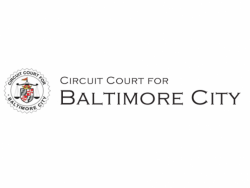
Evaluation: Report on Programs to Assist Self Represented Litigants of the Baltimore City Circuit Court of the State of Maryland- Final Report (Baltimore City Circuit Court 2004)
An evaluation of the programs to assist self-represented litigants in the Circuit Court of Baltimore City, Maryland. The Report was prepared as part of the Trial Court Research and Improvement Consortium Pro Se Assessment Project and uses an Executive Ass ...
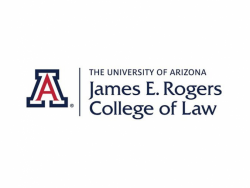
Evaluation: The Utah Online Dispute Resolution Platform: A Usability Evaluation and Report (i4J Program 2020)
The Utah Online Dispute Resolution Platform: A Usability Evaluation and Report was published by the Innovation for Justice (i4j) Program at the University of Arizona School of Law, led by Professor Stacy Butler. The following is the report's executiv ...
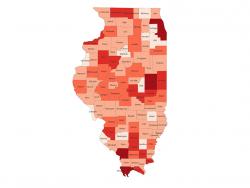
News: Illinois Supreme Court Commission on Access to Justice Uses SRLN Maps for Statewide Strategic Planning (Illinois Supreme Court 2017)
The Illinois Supreme Court Commission on Access to Justice has started using the SRLN demographics maps for presentations to circuit clerks, circuit court judges, civil legal aid and pro bono practitioners. “The maps helped provide context for why access ...
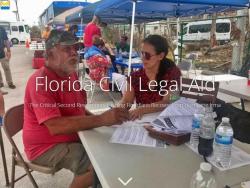
News: Interactive story map shows hurricane impacts and Florida’s vulnerable populations (Florida 2017)
The Self-Represented Litigation Network (SRLN) helped The Florida Bar Foundation create a new data resource that reveals the impact of Hurricane Irma on Florida and the vulnerable populations who could potentially need civil legal aid in the recovery, and ...
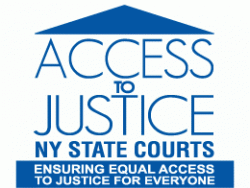
Best Practices: Document Assembly Programs Best Practices Guide for Court System Development and Implementation Using A2J Author (New York 2017)
Beginning in 2005, the New York State courts began developing Document Assembly Programs for use in its Help Centers using A2J Author for the front-end, HotDocs software for the back-end, and LawHelp Interactive server to host the programs. By 2009, this ...
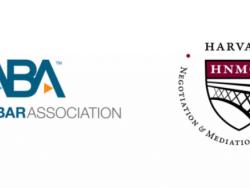
Report: Designing for Housing Stability: Best Practices for Court-Based and Court-Adjacent Eviction Prevention and/or Diversion Programs (Harvard Negotiation & Mediation Clinical Program and American Bar Association 2021)
Designing for Housing Stability: Best Practices for Court-Based and Court-Adjacent Eviction Prevention and/or Diversion Programs (Joint Report of the Harvard Negotiation & Mediation Clinical Program and American Bar Association 2021) The Task Force on ...
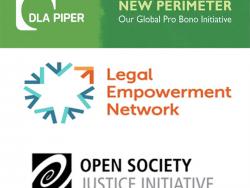
Report: Providing Legal Services Remotely: A Guide to Available Technologies and Best Practices (DLA Piper, Legal Empowerment Network, New Perimeter, and Open Society Justice Initiative 2021)
The COVID-19 pandemic has forced us all to confront the reality that providing legal services remotely is not only necessary to meet the needs of clients, but it is also in the best interest of public health and reducing the risk of infection. Meeting wit ...
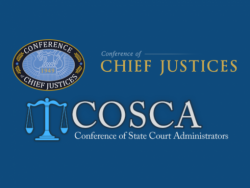
Resource: Guiding Principles for Post-Pandemic Court Technology (CCJ/COSCA 2020)
The Conference of Chief Justices (CCJ) and Conference of State Court Administrators (COSCA) published these Guiding Principles for Post-Pandemic Court Technology on July 16, 2020 with the goal to better guide state courts as they moved services to remote ...
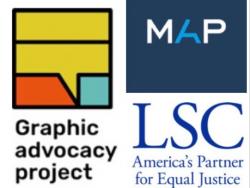
Report: Better_______: Strategies for User-Informed Legal Design (Michigan Advocacy Program and Graphic Advocacy Project 2021)
In 2019, the Michigan Advocacy Program (MAP) received a Technology Initiative Grant (TIG) from the Legal Services Corporation (LSC) to bring UX design and usability testing training to the justice community. After having struggled with these topics in the ...
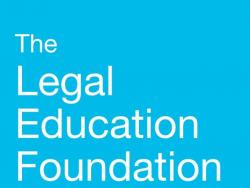
Report: Digital Justice: HMCTS Data Strategy and Delivering Access to Justice Report and Recommendations (Byrom 2019)
This report was based on research conducted by Dr. Byrom during a three-month secondment to HM Courts and Tribunals Service (HMCTS) in early 2019, at the invitation of HMCTS chief executive Susan Acland-Hood. As a public guarantee of Dr Byrom’s independen ...